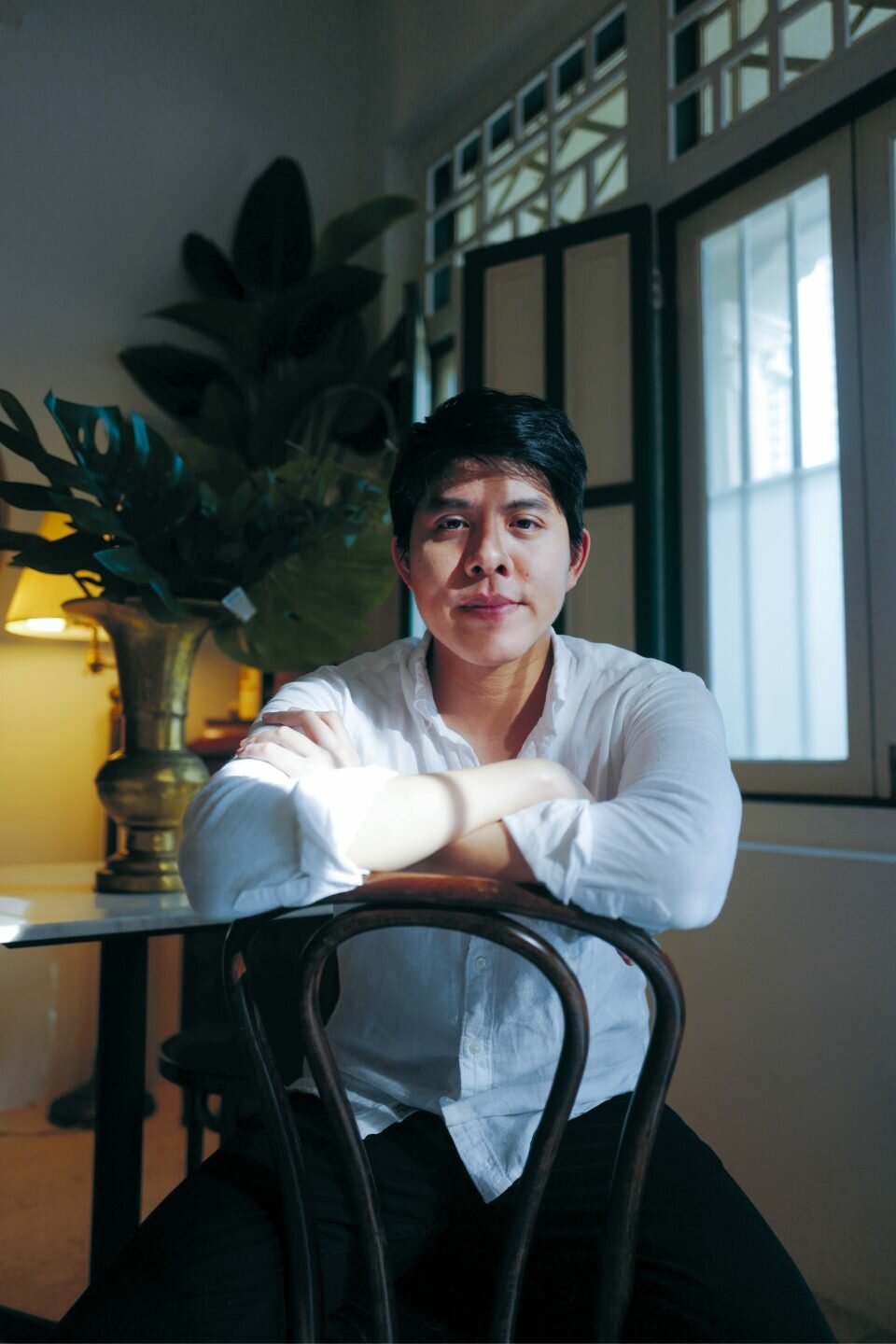“I started Figment as a response to Singapore’s ever-changing urban lifestyle and cityscape,” Fang Low says of his boutique co-living concept. “By modernising traditional shophouses and providing opportunities for quality communal interactions, I wanted to help others reclaim that ‘kampung spirit’.”
No two Figment houses, each comprising four to six suites, are alike. The suite packages offered to tenants (known as members) feature not only designer interiors adorned with artworks but also local artists’ programmes.
Low’s insatiable appetite for art was stoked during his internship with the Asian Art Department at Christie’s New York in 2012. After completing his studies at New York University’s Stern School of Business, he returned to Singapore and worked as an investment banker with Goldman Sachs while moonlighting as an arts curator. During that time, he curated pop-up art exhibitions in vacant shophouses where his dad Low Seow Juan was a principal investor.
In 2017, Low set up Figment, through which he manages these shophouses — four of which were already recognised with design awards — and several more from other homeowners.
With his next project of three houses in 2019, Low “challenged designers to adapt each unit into a modern space while retaining its distinct sense of place”. To achieve that sense of place he speaks of, Low engaged a historian to research the heritage and characteristics of the houses and their surroundings. One of the units, for instance, is a pre-war terrace in the Balestier Conservation Area, which has a rich history in rattan manufacturing — so rattan became a recurring theme throughout the suites.
To that end, Low engaged the co-founders of Scene Shang to extend their signature Shanghai art deco touch to the house’s custom-made furnishings. From the Chinese screen in the living area to bedframes in the suites, all the elements showcased rattan woven in a lattice style.
Another way Figment sets itself apart is with its curated programmes. “It’s a very community-centred and vibrant living arrangement reminiscent of pre-skyscraper-Singapore,” opines Low. Members can partake in group activities that include cocktail-making lessons and — given that 80 percent of them are expats — private home dinners that introduce local food through fine-dining renditions by Wearelittlebites. Members’ artisanal welcome kits include a handmade mug by local ceramics collective Weekend Worker.
Even having to adhere to social distancing measures due to Covid-19 has done little to diminish Low’s passion for the co-living business. On the contrary, with working from home likely to become a way of life, he is looking to redesign the spacious shared ground floors to facilitate co-working — expect hot-desking workstations and separate glass-encased meeting rooms.
This article first appeared in the August 2020 issue of A Magazine.
